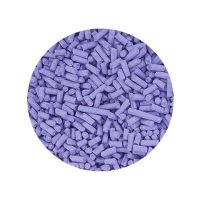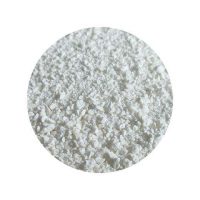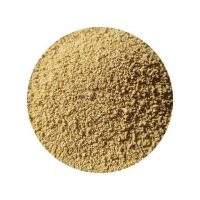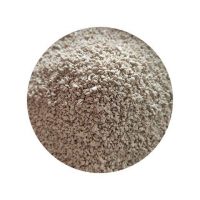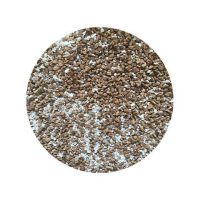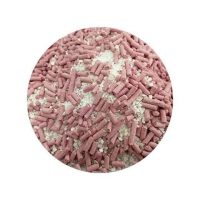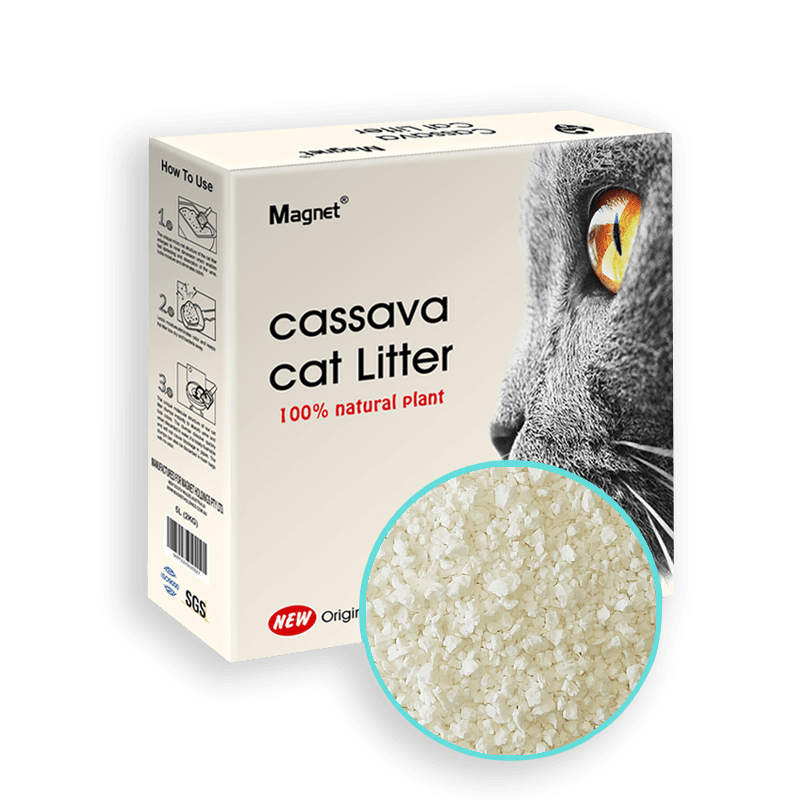If you’ve ever wondered, “Why does my cat like to eat litter?” you’re not alone. This peculiar behavior can be both concerning and puzzling for cat owners.
In this blog post, we’ll explore the possible reasons behind this unusual habit. From nutritional deficiencies to behavioral issues, there are several factors that could be contributing to your cat’s litter-eating behavior.
Why Does My Cat Like to Eat Litter?
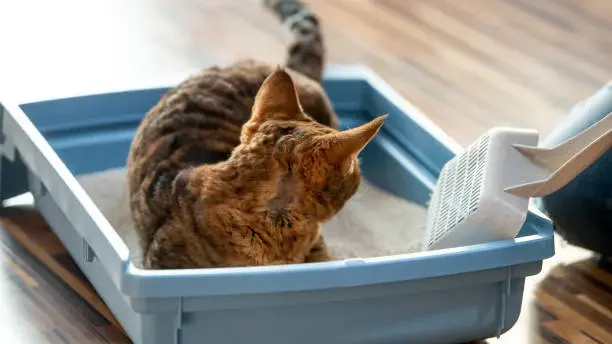
Medical Explanations
Nutritional Deficiencies: A lack of certain nutrients in your cat’s diet could lead to abnormal cravings, including for litter. For example, a deficiency in iron or other minerals might cause your cat to seek out non-food items.
Gastrointestinal Issues: Conditions like inflammatory bowel disease or parasites can disrupt your cat’s digestive system, making them more likely to eat litter.
Anemia: Cats with anemia may exhibit odd behaviors, including eating litter as they try to supplement their diet with iron.
Behavioral Factors
Stress and Anxiety: Changes in the environment, such as a new pet or a move, can cause stress in cats. Eating litter could be a coping mechanism.
Boredom: Lack of mental stimulation and entertainment can lead to boredom, and some cats may turn to eating litter out of sheer boredom.
Curiosity: Cats are naturally curious creatures, and the texture and smell of litter might pique their interest.
Environmental Influences
Accessibility: If litter is easily accessible, cats may be more likely to explore and potentially eat it.
Type of Litter: Some litters may be more appealing to cats due to their texture or smell.
If your cat is consistently eating litter, it’s important to consult with a veterinarian to rule out any underlying health issues and to get advice on how to address the problem.
What Happens if Kittens Eat Cat Litter?
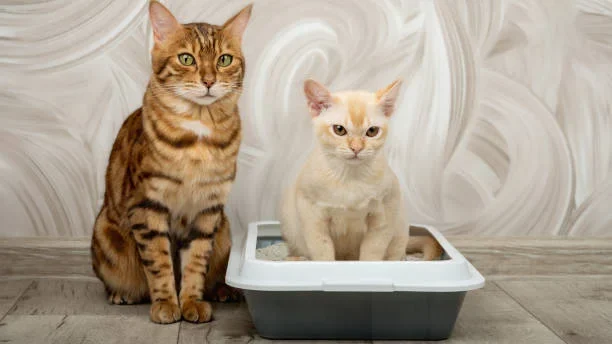
While occasional ingestion of small amounts of cat litter might not cause immediate harm, it can pose significant health risks to kittens due to their smaller size and more sensitive systems. Here are some potential consequences:
Digestive Issues
Cat litter can cause gastrointestinal upset, leading to symptoms like vomiting, diarrhea, and constipation.
Obstruction
If the litter is ingested in large quantities, it can lead to intestinal blockages, which can be life-threatening if not treated promptly.
Toxins
Some cat litters contain chemicals or additives that can be toxic to kittens, even in small amounts.
Nutrient Deficiencies
Eating litter can interfere with a kitten’s ability to absorb essential nutrients from their food, leading to malnutrition and stunted growth.
How to Stop Cat From Eating Litter?
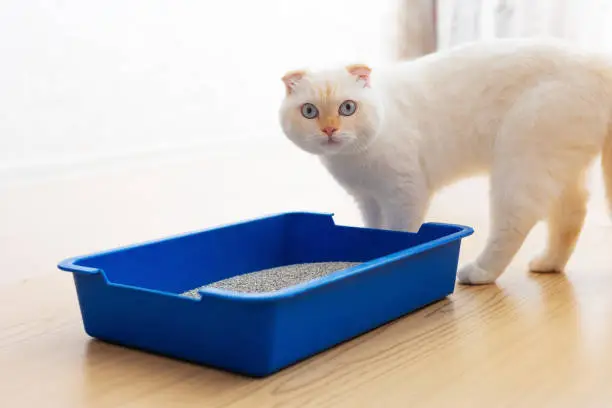
If your cat is indulging in the unappetizing habit of eating litter, it’s important to address this issue promptly. Here are some effective strategies to help your feline friend break free from this habit.
- It’s important to rule out any medical issues. A visit to the veterinarian can help determine if there’s a nutritional deficiency or other problem causing this odd behavior.
- Ensure your cat has a balanced diet. High-quality cat food that meets all nutritional requirements can reduce the likelihood of seeking out non-food items.
- Consider changing the type of litter. Some cats may be attracted to certain scents or textures, so switching to a different kind might help. Use a covered litter box to make it less accessible.
- Keep your cat entertained and stress-free. Provide toys and playtime to prevent boredom, and create a calm environment to reduce stress. If you catch your cat eating litter, use gentle deterrents like a spray of water. Reward good behavior when your cat uses the litter box properly. With time and patience, you can help your cat break this habit.
Is Cat Litter Toxic to Breathe?
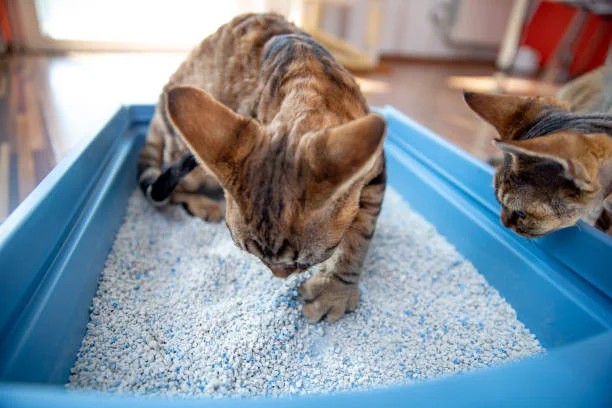
While occasional ingestion of small amounts of cat litter might not cause immediate harm, it can pose significant health risks to kittens due to their smaller size and more sensitive systems.
Cat litter poses significant risks to breathing. The dust generated from it can be inhaled, irritating the lungs and causing symptoms like coughing, sneezing, and difficulty breathing. Additionally, some cat litters contain chemicals that, when inhaled, can lead to respiratory problems, headaches, and dizziness. Moreover, if the litter becomes damp or wet, it can serve as a breeding ground for mold. Mold spores can be inhaled and cause various health issues including respiratory problems and allergies.
Symptoms of Dog Eating Cat Litter?
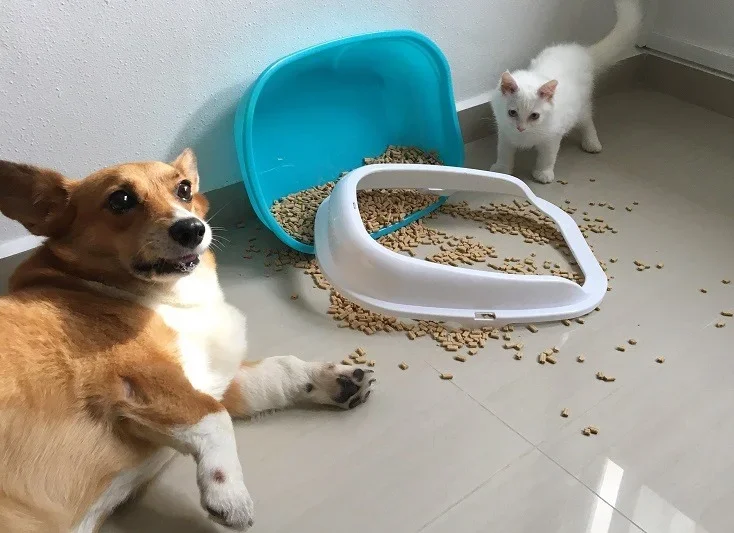
When a dog eats cat litter, several symptoms may occur. Gastrointestinal issues are common. The dog may vomit as its body tries to expel the indigestible litter. Diarrhea can also happen because the litter may disrupt the normal digestive process. There might be abdominal discomfort, and the dog could show signs of pain such as whining, restlessness, or reluctance to move.
If the cat litter contains chemicals or additives, the dog could experience more serious symptoms. These may include excessive drooling, difficulty breathing, or even signs of toxicity like tremors or seizures. Additionally, a blockage could form in the digestive tract if a large amount of litter is consumed, which would lead to more severe abdominal pain, loss of appetite, and potentially life – threatening conditions if not treated promptly.
Conclusion
Understanding why your cat likes to eat litter is crucial for ensuring their health and well-being. By addressing the underlying causes, whether through proper nutrition, reducing stress, or seeking veterinary care when necessary, you can help your furry friend break this potentially harmful habit. Keep a close eye on your cat’s behavior and take proactive steps to keep them safe and happy.


